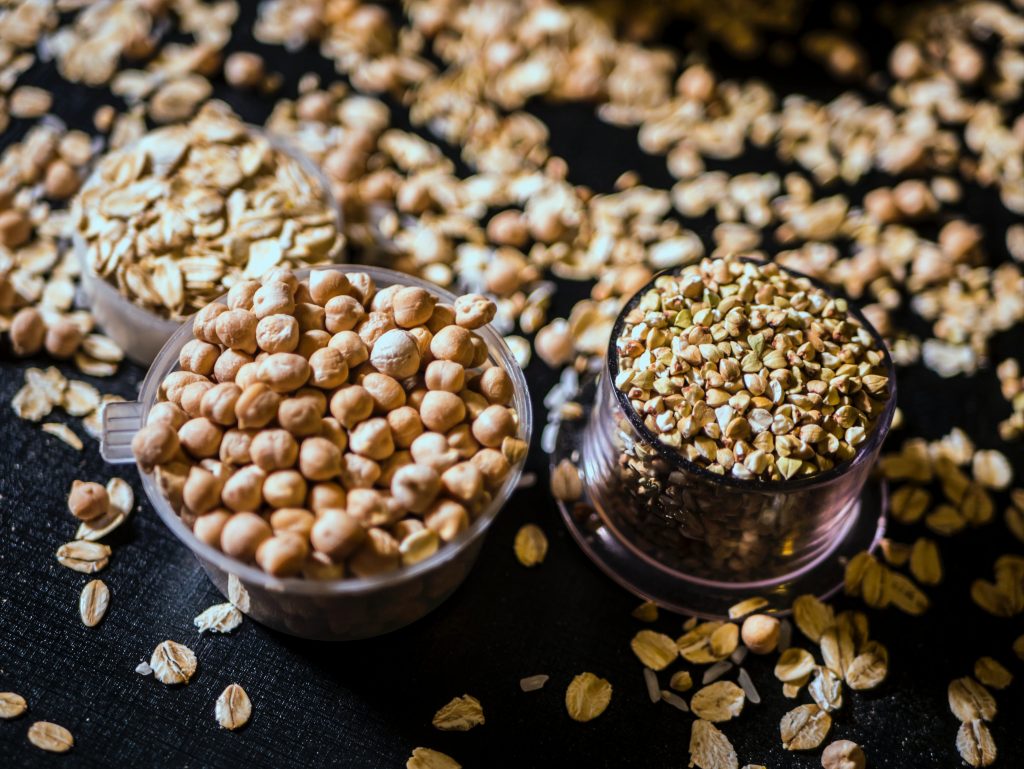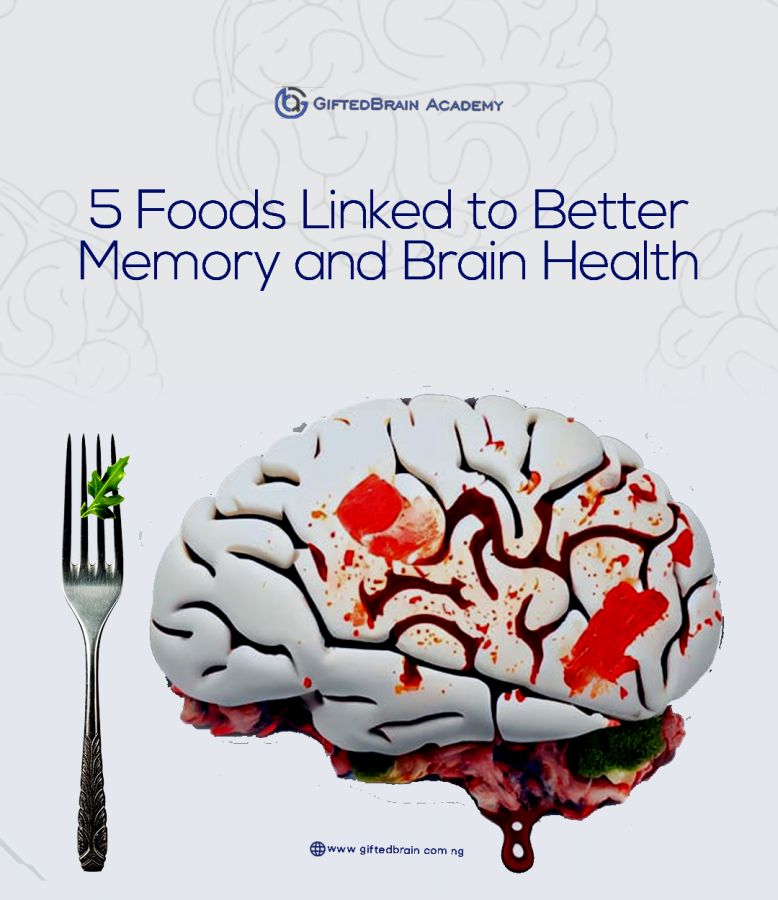Did you know that the food you consume has a significant impact on your brain and can influence how you think, act, and process information?
Yes, studies have found that certain foods are linked to better memory and brain health. In this article, we’ll look at how these foods improve memory and brain health.
However, before we get into these foods, let’s talk about some brain facts.
What is the brain?
Many people view the brain as a jelly-like organ that influences how we think. This is an accurate description but oversimplified because the brain is much more than that.
According to Wikipedia, the human brain is the central organ of the nervous system, which also includes the spinal cord. The brain is made up of the cerebrum, the brainstem, and the cerebellum. It regulates the majority of the body’s activities by processing, integrating, and coordinating information received from the sense organs and making decisions about the instructions sent to the rest of the body. The brain is enclosed and protected by the skull bones of the head.
Facts about the brain include:
1. The human brain is composed of 60% fat.
2. Your brain is not fully formed until the age of twenty-five.
3. Your brain’s storage capacity is unlimited.
If the brain’s capacity is limitless, why is it so difficult to remember things, and why do people struggle to understand?
The brain’s capacity is indeed limitless; however, for the brain to function properly, it requires nutrients.
Just as the human body cannot function without food, neither can the brain. These foods have been linked to better memory and brain health.
List of Foods Linked to Better Memory and Brain Health
1. Fatty fish/ oily fish
Fatty fish which includes fish like salmon, tuna, and sardines, are packed with omega-3 fatty acids. These special fats are like superheroes for your brain!
Omega-3s play a crucial role in memory and brain health. They help build and maintain the structure of brain cells, which is important for optimal brain function. They also support the communication between brain cells, helping your brain send messages more efficiently.
But that’s not all! Omega-3s also have anti-inflammatory properties. They can reduce inflammation in the brain, which is linked to various brain disorders and cognitive decline. By keeping inflammation in check, omega-3s help protect your brain from damage and support overall brain health.
Research suggests that consuming omega-3s regularly, either through fatty fish or supplements is linked to better memory and brain health. It may also improve focus and mood. Additionally, they are capable of reducing the risk of age-related cognitive decline and certain mental health conditions.
So, if you want to give your brain a boost, consider adding fatty fish to your diet a few times a week. Your brain will thank you!
2. Dark Chocolate
Dark chocolate is a delicious treat that also benefits your brain! It contains flavonoids, which are powerful antioxidants. These flavonoids help protect your brain cells from damage caused by free radicals, which can contribute to ageing and cognitive decline.

Research has shown that dark chocolate is linked to better memory and brain health because of its high content of flavanols. Flavonols help increase blood flow which in turn enhances cognitive function, memory, and focus.
Dark chocolate also contains small amounts of caffeine and other stimulants, which can provide a mild energy boost and improve alertness. It may even help with mood regulation by increasing the production of endorphins, those natural feel-good chemicals in our brains.
However, it’s important to remember that moderation is key. Dark chocolate is still high in calories and fat, so it’s best to enjoy it in moderation as part of a balanced diet.
So, indulge in a square or two of dark chocolate and savour the benefits it can bring to your brain and overall well-being!
3. Nuts
Nuts are packed with nutrients that are beneficial for our memory and brain health. They contain healthy fats, such as omega-3 fatty acids, which are essential for brain function and development.
These fats help build brain cell membranes and support communication between brain cells.
Nuts are also a great source of antioxidants, which help protect the brain from oxidative stress and inflammation. This can help reduce the risk of age-related cognitive decline and improve overall brain function.
Additionally, nuts are rich in vitamin E, which is known to have neuroprotective properties. Vitamin E helps protect cells from damage caused by free radicals, which can contribute to cognitive decline and memory loss.
If you didn’t know, nuts are also a good source of minerals like magnesium, zinc, and iron, which are linked to better memory and brain health. These minerals play a role in neurotransmitter function, which affects mood, memory, and cognitive performance.
Studies have shown that regularly consuming nuts, such as almonds, walnuts, and cashews, is associated with improved cognitive function and a reduced risk of neurodegenerative diseases like Alzheimer’s.
However, it’s important to keep portion sizes in mind, as nuts are also high in calories. A handful of nuts a day is a good amount to enjoy their brain-boosting benefits without overdoing it.
So, grab a handful of nuts as a snack or sprinkle them on your meals to give your brain a tasty and nutritious treat!
4. Whole grains
Whole grains, like oats, brown rice, and whole wheat, are rich in fibre, vitamins, and minerals linked to better memory and brain health. They release glucose slowly into the bloodstream, providing a steady supply of energy to the brain.

The complex carbohydrates found in whole grains are the brain’s preferred fuel source. They help improve focus, concentration, and cognitive function. Whole grains also contain B vitamins, which are essential for brain development and function.
Research suggests that a diet rich in whole grains may reduce the risk of cognitive decline and improve memory and attention span. So, swap refined grains for whole grains to nourish your brain and keep it performing at its best!
5. Coffee
It has been noted that caffeine can cause so much harm to the body. However, if taken in the right proportion it can still be helpful to the brain and body.
Coffee contains caffeine, a natural stimulant that can have positive effects on brain function. When you sip on that cup of joe, caffeine blocks adenosine, a neurotransmitter that promotes sleepiness, and increases the release of other neurotransmitters like dopamine and norepinephrine. This can improve mood, attention, and alertness.
Research suggests that moderate coffee consumption may enhance cognitive function, memory, and reaction time. It can also help with mental fatigue and increase productivity.

However, it’s important to note that the effects of coffee can vary from person to person. Some individuals may experience jitters, anxiety, or disrupted sleep if they consume too much caffeine.
Remember to enjoy coffee in moderation and be mindful of your body’s response. And if you’re sensitive to caffeine and much prefer to avoid it, there are plenty of other ways to stay energized and focused throughout the day! ☕️😄
Final Thoughts
That’s it, guys. What do you think?
Will you incorporate one or two of these foods that have been linked to better memory and brain health into your diet?
Pexels.com



This content is really educative and entertaining